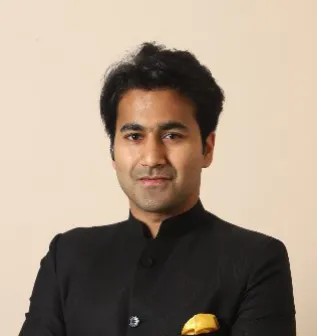
This article is part of the series—Raisina Edit 2023.
I teach an undergraduate class at Oxford where I begin the semester by reminding my students that by the time they graduate, most of what they learn at university would be redundant. This leaves them baffled and a bit anxious about what the future holds. My goal is obviously not to scare them but to help recalibrate their approach to learning, earning and reskilling. A report by Dell suggests that 85 percent of jobs that will be around in 2030 do not exist yet. That means the next seven years are likely to bring about even more of an upheaval in the labour market, even when compared to the last two years that witnessed everything from the great resignation to the mass layoffs, induced first by the pandemic and then the global recession. General purpose technologies like Artificial Intelligence (AI) will continue to grow exponentially. Instead of getting anxious or trying to halt progress, which is a futile attempt, the new workforce will have to learn to work with them. Some schools have responded to Chat GPT-like applications by banning them. However, this seems to be regressive. Instead, their approach should be focused on helping students engage with the application and improve their skills.
< style="color: #0069a6;">While schools and universities may find it hard to keep their content and pedagogy up to date, they can play a huge role in helping learners find a supportive community, figure out how to learn new things, and continually reinvent themselves.
AI should be thought of as IA—Intelligence Augmented. Used smartly, it has the potential to augment our productivity and creativity. This is, of course, easier said than done. Any change brings about a period of uncertainty and anxiety. While schools and universities may find it hard to keep their content and pedagogy up to date, they can play a huge role in helping learners find a supportive community, figure out how to learn new things, and continually reinvent themselves. More than imparting knowledge, inculcating the right mindset towards work could be a more meaningful contribution of educational institutions. They will also have to learn to do this in a cost-effective way. In the United States, for instance, the cost of higher education is growing eight times faster than the median wages. This is likely to make college unaffordable to almost everyone. People are bound to look for alternative ways to future proof their career. Therefore, the learn-to-earn model is likely to propel the next wave of learners. For instance, from the start of the pandemic, Network Capital has been partnering with fast-growing technology firms to run online cohort-based-courses that are free for learners. The companies pay for the courses in the hopes of finding top talent they can potentially hire. It is a win-win for everyone—companies find talent and increase their brand awareness; learners upskill themselves without taking on debt and graduate with a strong network of teachers, mentors, and fellow students. Cross-subsidising learning has a great return on investment It makes practical sense. The approach in these learn-to-earn courses is to give students practical exposure into a new industry by having them apply what they learn to real problems. Once they learn how to do that, their employability grows exponentially. For example, Network Capital partnered with Mudrex, a large crypto fund, to run programmes on Web 3.0 and blockchain as there is a huge shortage of Web 3.0 professionals globally. Even in a place like Oxford, where this author teaches a course, there are barely any blockchain-related courses. Less than 1 percent of the world knows anything about blockchain technology, a major driver of employment in the years to come. The need for structured learning programmes on such technologies is obvious but learners cannot be expected to pay through their noses for them. It is time for prospective employers to partner with edtech companies, governments, and universities to carve out outcome-driven learning programmes.
< style="color: #0069a6;">Millennials and Gen Z today are not interested in having one job for life.
Recently Network Capital, 5ire.org, and NITI Aayog partnered to create a blockchain module for all school students in India. It will be freely available to all along with hackathons to help students build applications that address complex social and economic challenges. The students can then take these applications to raise funding or put them on their resumes when applying for internships and jobs. Such learn-to-earn programmes also offer students the flexibility to build a portfolio of careers. Millennials and Gen Z today are not interested in having one job for life. They thrive on experimentation and find meaning in trying out different things. This is a broader trend that is likely to accelerate. People can now monetise their creativity and build a range of income streams. Back in the day, universities were thought of as places to learn and experiment before finding a stable career and committing to it. Today, learning and experimentation need to be a part of our daily lives. We will have to discover the problems and projects that need us the most and apply our knowledge to add tangible value to them. The anxiety-driven pandemic years permanently changed our relationship with work. Even though there seems to be a huge shortage of jobs currently, work means a lot more than a source of income. Designing our work life today entails seeking opportunities that offer autonomy, mastery, and purpose. This trifecta, coupled with continual learning and reinventing oneself, will future proof us against the twists and turns in the labour market. At this point in the essay, there is good and bad news. The bad news is that we can’t predict the job the reader will have a decade from now. No one can. The silver lining is that the adventure of figuring it out with a thriving community of learners with the right mindset will be memorable.
< style="color: #0069a6;">The internet allows niche areas to scale but it doesn’t come with a standard playbook or a how to guide.
The most successful people I know aren’t ones who decided their career strategy looking at charts, graphs, and future trends. They leaned into their innate curiosity, adapted their approach, learned new skills, and came up with a set of ideas that could move the needle. Everyone does not need to become a blockchain developer or an Artificial Intelligence engineer. There is ample scope for poets, community builders, activists, and policy makers but it may not be at one organisation. The internet allows niche areas to scale but it doesn’t come with a standard playbook or a how to guide. The workforce of the future will have to learn to direct their careers keeping in mind they cannot do it alone. They will have to reinvent themselves multiple times and build a thriving community along the way starting from school right up till retirement. I normally conclude the semester at Oxford asking my students to reflect on three questions:
- What did they learn about themselves working through the assignments?
- What did they change their mind about during the course?
- What are some new career experiments they want to conduct in the next semester?
The last question yields the most fascinating of responses. As I listen to them, I get a flavour of their ambitions, their curiosities, and their willingness to experiment. More than anything, it gives them confidence to treat their work lives as an open book rather than a scripted outcome dictated by their major or their grades.
The views expressed above belong to the author(s). ORF research and analyses now available on Telegram! Click here to access our curated content — blogs, longforms and interviews.




 PREV
PREV



